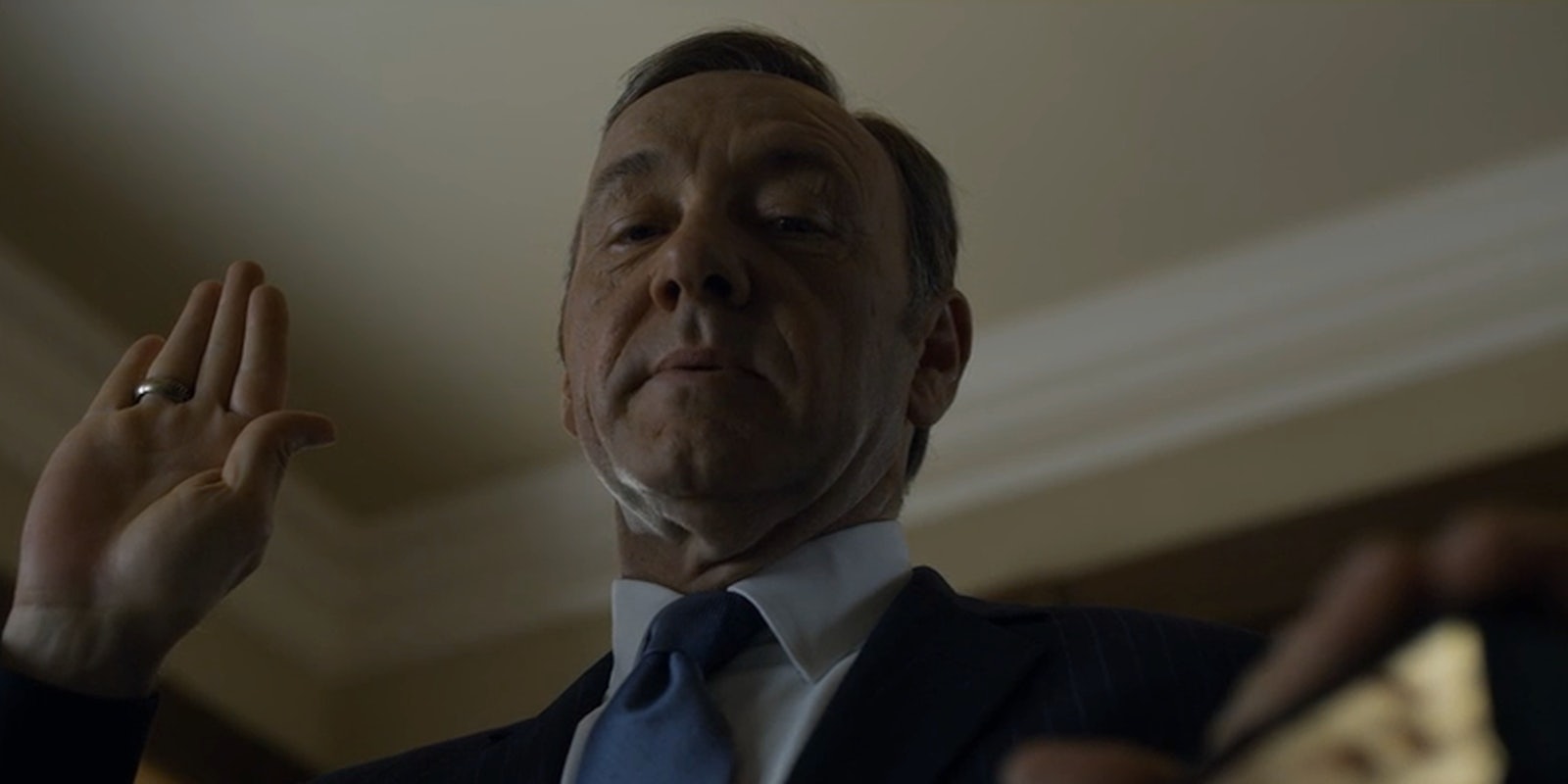When Netflix decided to premiere its Mitt Romney campaign documentary, Mitt, three weeks ago, it probably thought it was doing House of Cards a favor. It would provide an apt lead-in to the second season of their flagship drama series while at the same time showcasing Netflix’s burgeoning output across both fact and fiction.
But the scheduling has done House of Cards a disservice. Watched in tandem, the stumble-bum campaigning of Romney immediately makes Frank Underwood’s (Kevin Spacey) journey appear ludicrous. Whereas Romney’s political strategy seemed to mostly involve arguing about lighting in front of disinterested teamsters and praying with his never-ending family, Underwood’s path included a body count.
This is intentional, of course, but misguided. House of Cards trades in the mythology of the American political Machiavel, an indication that its producers have never envisioned it as just another political drama. It is meant to be thrilling and shocking—and it succeeds at both. But originally it also had certain, grand pretensions, most evident through Underwood’s frequent addressing of the audience that has been perceived by some as an allusion to Richard III.
The intention may well have been Shakespearean, but in practice this method became increasingly banal in Season 1—the cold classical language employed for his confessionals (“I cannot abide falling back to square one”) jarring horribly with puerile lines like “Aren’t you going to wish me a happy Father’s Day?” while performing fellatio. It also served a decidedly non-Richard III purpose: lazy narrative elucidation rather than the audience manipulation the Bard used to garner sympathy in Richard.
Season 2 suggests that these failings were noticed and the aforementioned pretensions have been reined in. House of Cards can no longer paint itself as a timeless parable told in our time, but at least it no longer thinks that it is better than it is. Streamlined into a decidedly more traditional show, it is less about revenge and more focused on capturing Underwood’s irrepressible ascent to power. Underwood continues to shock, but we are submitted to fewer of his interjections and are presented with more of his involvement in the machinations of government.
There still exists much of the clumsy symbolism that provided no service to Season 1 other than to allow slower viewers the satisfaction of noticing it. The boat theme, some sort of yardstick of the Underwood’s shifting relationship, has thankfully gone the way of the broken ergometer, yet it has been replaced with a running metaphor. In the season’s opening scene, we find the Underwoods jogging, stopping mid-stride, looking at each other and with no obvious causation, nodding to the other. It is labored and, perhaps being spoilt by the opaque stylings of Mad Men, it is obvious.
Despite these fluctuations, Spacey’s performance continues to be remarkable. Even with some particularly duff lines and at times ridiculous plotting, he makes Underwood if not exactly believable, at least enjoyable. He is so central to the show that the development of other characters surely suffers. Structurally this could be seen as a problem, as no other major series is as reliant on a single core narrative as House of Cards. Indeed it means that Underwood himself continues to have hands-on involvement in matters that common-sense suggests he would be able, and prudent, to distance himself from.
This fault can be explained away as entertainment, but the show’s complete reliance on Spacey leads into its other structural defect, namely its potential pointlessness if the seemingly inevitable occurred and Underwood reached his ultimate goal.
From the outset, the role of president has very much been Underwood’s endgame, and beyond that it doesn’t seem like this program would have a future, as we have been conditioned only to be interested in his trajectory, not his landing. It is possibly an unnecessary concern, but it would be shame to cut short Spacey’s stint in this role.
Screengrab via House of Cards/Netflix


